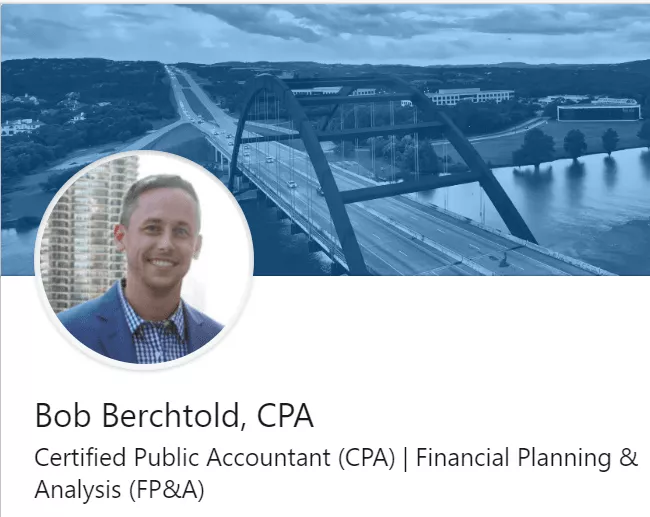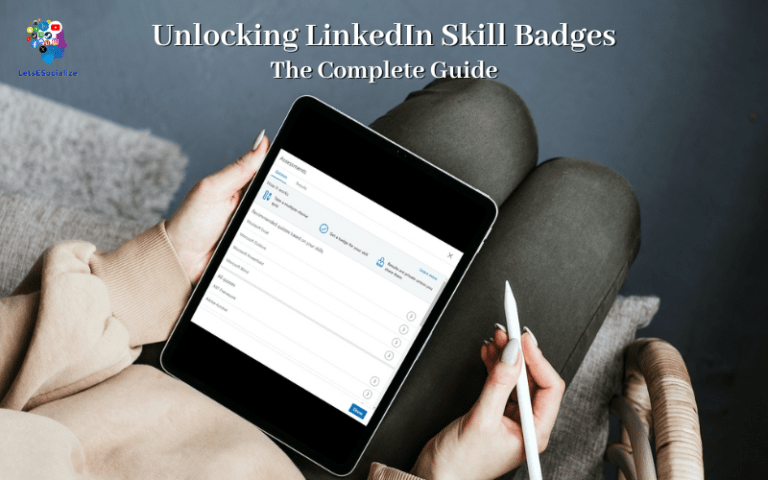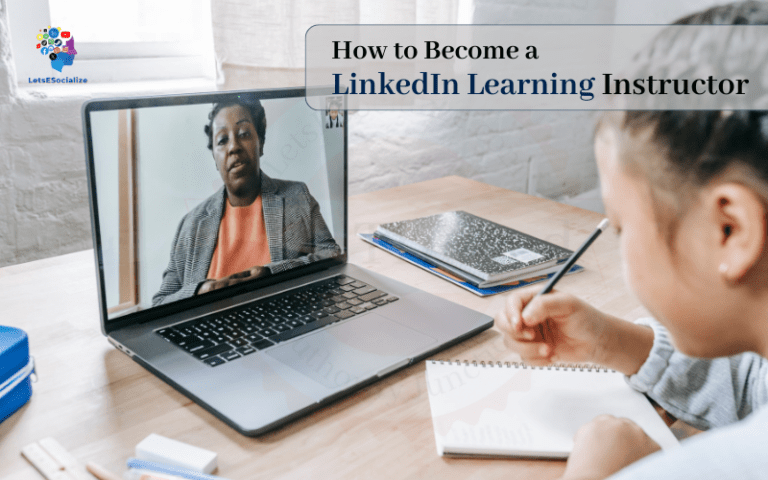LinkedIn has become an invaluable platform for accounting professionals to build their personal brand, network, stay updated on industry trends, and advance their careers. With over 560 million users globally, it provides a massive reach and opportunities to connect with peers, clients, recruiters and influencers in the accounting sphere.
This comprehensive guide will walk you through exactly how to leverage LinkedIn For Accounting Professionals to maximize your impact and presence as an accounting, finance or bookkeeping professional. Whether you are a student, accountant, CPA, CFO or work in any accounting capacity, there are concrete tips in here to boost your LinkedIn game.
So toss your dinosaur calculator away and let’s get started! This ain’t your grandpa’s networking.
Table of Contents
Why LinkedIn Matters for Accounting Professionals
As an accountant, auditor, or financial controller, you likely underestimate the value of investing time in cultivating a LinkedIn presence. Juggling reconciliations, month-end closes, and client needs leaves minimal mindshare for social media. And professionally, most opportunity originates through referrals among trusted connections made at firms and industry conferences across your career.
However, even introverted number-crunching experts should recognize LinkedIn’s possibilities to accelerate networking and unlock new career progression avenues difficult to find otherwise in the accounting world.
Here’s why you should still prioritize gaining LinkedIn proficiency despite all the professional obligations competing for your time:
Wider Industry Connectivity
Accounting remains a relationship-driven industry. But via LinkedIn, you can grow your circle wider and faster, connecting beyond colleagues and clients. Recruiters, mentors, niche peer groups, alumni, and potential new customers all become accessible to build rapport.
Insights on Client Organizations
Researching the backstories of prospective client organizations makes pitching services easier. LinkedIn supplies key intelligence on companies, decision-makers, pain points, and news often inaccessible elsewhere.
Showcasing Specialties
Static resumes fail to convey specialties. LinkedIn profiles and content publishing help demonstrate specific accounting, tax, audit, and advisory niches you occupy to attract ideal opportunities.
Passive Job Discovery
Beyond firm hopping, many management, industry, and advisory positions flow through LinkedIn. Passively engaging exposes exciting lateral prospects to more organizations’ source talent.
While LinkedIn requires some profile grooming and community participation, its networking dividends make the effort worthwhile for CPAs, controllers, and accounting managers at any career stage.
Also Read – LinkedIn Scams Exposed: How to Identify and Report Suspicious Activity
How Accounting Professionals Should Optimize Their LinkedIn Profile
Ensuring your LinkedIn presence aligns with industry norms remains essential for credentialed accountants and finance professionals before actively engaging.
Here are 8 ways to optimize the key LinkedIn profile components specifically for an accounting audience:
1. branded Headline
Summarize professional identity clearly and succinctly such as “Audit Manager | CPA | Risk and Controls Specialist” using recognizable credential abbreviations common in accounting.
2. Robust job descriptions
Detail significant accounting projects delivered, specialized services across individual roles, cutting-edge methods or systems adopted, and business impact rather than just listing software and tasks. Demonstrate how your skills helped firms and clients specifically.
3. certifications front and center
Call out key acronyms like Certified Public Accountant (CPA), Chartered Professional Accountant (CPA Canada), and specialty certifications like CMA, CIA, and CISA up front alongside a university degree. These headline accreditations lend credibility.
4. Relevant Skills listing
Beyond core competencies like “Financial Accounting” and “Auditing”, include adjacent skills stacks gained such as “Data Analysis”, “Forecasting Models” “Budget Management” etc aligned to future career expansion areas. Also, list relevant technology fluency with ERPs given automation’s growth.
5. Education specificity
Identify actual accounting degree precision and any honors/awards achieved (graduated Summa Cum Laude) rather than only listing college names. Highlight notable coursework and extracurriculars demonstrating well-roundedness.
6. Professional photography
Finance remains a conservative industry. Professional headshots and attire in line with accounting stereotypes reassure credibility during first impression clicks by prospects. Avoid heavy filters or stylized images.
7. growing connections strategically
Curate a diverse contact base spanning fellow accounting peers, senior executives in target companies, referrers, industry influencers, and reporters covering relevant beats (e.g. CFO Magazine) and tech vendors’ marketing solutions attempting Accounting mindshare grabs.
8. Groups showcasing expertise
Join 5-10 niche interest groups like “Tax Consultants”, “Blockchain Accounting” and “CFO Think Tank” that align to your current or aspirational specialty allowing showcasing thought leadership via posts and commentary.
Emulating these best practices elevates perceived subject matter expertise and employer appeal for accountants on the fast track toward controller or VP of Finance ambitions.
Also Read – Unlocking LinkedIn Premium Benefits for Military Members
Key LinkedIn Features Valuable for Accounting and Finance Pros
Beyond profile curation, exploring the various engagement features across LinkedIn unlocks additional use cases to boost accounting careers such as:
Content Publishing
Authoring long-form posts offers opportunities to demonstrate CPA expertise spanning tax, financial reporting, planning, payroll and other high-visibility topics while building Personal Brand.
Newsletters and Pulse Publishing
Creating bite-sized accounting analysis through LinkedIn newsletters distributed to opt-in subscribers enables consistent audience building similar to blogging but easier logistically through built-in tools.
Messaging Prospecting
Leveraging InMail credits via Premium Account facilitates personalized outreach offering specialized services or requesting informational interviews from account execs in desirable client companies.
Response rates range between 10-30% allowing qualified prospect engagement at an efficient scale.
Events and Webinar Hosting
Finance teams often gather at local chapter events or national conferences. Leveraging LinkedIn’s event management tools expedites logistics reaching niche internal accounting audiences aligned to the latest professional developments.
Targeted Job Application
Defaulting to public job boards yields homogeneous results. Instead applying for roles directly listed on Company Pages matching your preferences gives tailored visibility of under-the-radar finance openings unadvertised elsewhere.
In combination, LinkedIn furnishes the entire toolkit enabling certified public accountants to broaden professional horizons outside physical office and Rolodex confines in alignment with digital era networking expectations.
Crafting the Perfect Accounting-Focused LinkedIn Headline
As outsized attention gravitates to LinkedIn profile headlines, optimizing this prime positioning proves vital for accountants distilling their expertise into compact compelling messaging.
Consider the following frameworks tailoring headlines for maximum accounting industry appeal:
Problem Solving Positioning
Framing the headline around core financial issues and stress points resonates deeply with time and resource-strapped clients e.g:
“Helping restaurants improve profitability through data-driven inventory and waste management.”
This demonstrates domain specialization tackling universal SMB pain points.
Credentials + Specialization
Combining earned credentials and certifications with niche practice expertise conveys both general and specialized skills e.g:
“CPA optimizing biotech R&D tax credits and equity compensation audits”
This framework suits senior subject matter experts.
Job Function + Differentiator
Clarifying role scope while calling out differentiation e.g innovation adoption cultivates interest:
“Controller modernizing financial reporting through RPA and performance dashboard automation”
This exhibits the intersection of accounting excellence and digital fluency.
Location Tagline
Given accounting regulatory variations across state lines, specifying relevant geography helps talent prospects e.g:
“Audit manager specialized in serving Idaho agricultural and wholesale sectors”
This provides localization likely matching site visitor interests.
In all cases, convene credentials, specialties, and differentiators highlighting why prospects should connect with you specifically amidst crowded accounting profiles. Punchy, benefit-driven headlines win ever-shrinking attention spans.
Best Groups for Accounting Pros to Join on LinkedIn
While individual connections matter, groups equally provide fertile ground for accountants to engage like-minded finance peers, demonstrate thought leadership, and bootstrap niche communities that foster one’s brand.
Here are 12 of the most popular and relevant LinkedIn groups certified public accountants should consider joining and participating in regularly:
Tax Pros (300K+ Members) – Discussing tax codes, legislation, planning strategies
Accounting & Audit Professionals (250K+ Members) – Debating standards, best practices, career development
CPA Exam Study Group (225K+ Members) – Guidance and content aiding next gen CPAs
Tax and Accounting Professionals (150K+ Members) – Peers and advice assisting practitioners
Chartered Accountants Worldwide (100K+ Members) – Global forum for credentialed Pros
Young Tax Professionals Group (75K+ Members) – Cultivating rising CPA talent
Accounting & Finance Pros (50K+ Members) – Best practices across specializations
Accounting News(25K+ Members) – Sharing professional industry news
Alternative Careers For Accountants (25K Members) – Exploring non-traditional career pivots
Finance Business Partner Group (20K+ Members) – Financial planning techniques
Accounting & Finance Professionals (15K+ Members) – Peer knowledge sharing and networking
Women In Accounting (10K+ Members) – Female CPA career advice and empowerment
CFO Think Tank (10K+ Members) – Strategic financial insights for aspiring CFOs
Accounting Faculty Group (10K+ Members) – Connecting academic accounting professors
Young CPA Network (8K+ Members) – Guidance for early career accountants
MBA Accounting (5K+ Members) – Bridging MBA and CPA synergies
Accountants & Bookkeepers (2K+ Members) – Practice management and technology
Posting questions tackling industry problems, weighing in on emerging reporting standards, sharing technical knowledge, or providing mentorship allows accountants to achieve heightened visibility and esteem on these niche platforms from engaged peers facing similar experiences.
Through consistent insightful community participation, finance controllers, auditors, and accountants in business ascend into LinkedIn influencer status – an esteemed subset of subject matter experts sought for wider industry commentary. This amplifies personal brand, fuels new client conversations, and conveys technical prowess during talent screening by marquee employers.
In other words, don’t sit idle simply amassing generic connections – actively engage with relevant LinkedIn groups to maximize impact over time.
Also Read – How to Hide Birthday on LinkedIn
Recommended Messaging Strategy for Accountants on LinkedIn
Beyond profiles and communities lies the pivotal activity of forging direct relationships with ideal prospects on LinkedIn – an area most accountants feel least comfortable navigating.
Yet deftly customized outreach can unlock invaluable local peer connections, rapid access to niche specialty mentors nationally, or introductions bridging geographical and hierarchical gaps into coveted marquee client organizations seemingly impossible through traditional networking channels alone.
Here is a repeatable funnel optimizing LinkedIn messaging crafted for introverted accounting dispositions while still conveying credibility:
1. Research Target Receiver & Company
Investigate their background, career path, and specialty via previous roles and shared community membership to identify intuitive conversation starter ideas while personalizing tone accordingly.
Cold messaging strangers demands homework guessing appropriate icebreakers demonstrating alignment.
**2. Spot Mutual Connections or Groups **
Scan for intermediary contacts in common or aligned affiliations like universities or alumni networks that establish baseline perceived bonds that reduce perceived cold outreach barriers, adding familiarity.
Lightly name-drop if possible.
3. Note Recent Career Developments
Commenting on promotions, new ventures announced, mention in industry articles or similar timely events earns a perception of being digitally “in tune” enough to track their activities amidst busy schedules – a visceral positive first signal.
4. Raise Specific Conversation Trigger
Once sufficient context is set and tone conveyed, pose clear open-ended prompts seeking perspective around issues valuable given your specialization gaps or client needs e.g:
- Quick question as another retail accounting analyst – what data dashboards are restaurant controllers finding actionable for location-level profitability analysis? Our firm is revamping reporting but hasn’t gleaned best practices yet…
- As a fellow nonprofit auditor pursuing healthcare specialization, what compliance risk areas should I ramp up on first beyond just updated ASUs? I want to maximally add value for my smaller generalist clients needing outsourced Controller pragmatism.
Such focused “advice-seeking” elevates the recipient, builds influential social capital for them when sharing guidance, and positions you as an engaged professional earnestly trying to develop well-rounded expertise through virtual access now possible digitally.
This fledging dynamic seeds opportunities for inbound referrals, mentoring, and primary intelligence channels over time through systematic nurturing, unlike traditional networking. The introverted can indeed thrive here with some concerted messaging craft.
4 Steps to Shift Accounting Careers with LinkedIn
While underappreciated by introverts, properly harnessing all facets of LinkedIn ultimately accelerates career advancement for CPAs seeking higher profile public company positions, coveted controller roles within hot startups, or advisory services running their practice.
The key remains viewing time invested not as a forced chore but rather trajectory investment into one’s lifelong professional brand and network.
Follow these four shifts for maximum career impact:
1. Adopt Abundance Mentality
Recognize that online transparency surfaces 10X more career options than visible physically in one’s localized ecosystem on any given day. This mindset shift unlocks urgency in pursuing remote possibilities with lower perceived risk.
2. Set Google News Alerts
Stay perpetually informed on the latest developments, high-growth companies and C-suite moves tied to expertise areas not just idle industry news. The context of This power for perfect personalized outreach timing and deeper prospective relationship insights pre-messaging.
3. Connect with 3 New People Daily
Consistently foster embryonic relationships through consistently targeted low-volume outreach daily. This aggregates into a high-caliber personal network vault of connections, referrals, and insights over time eclipsing organically formed local networks.
4. Review Analytics and Refine
Analyze what content formats, publishing styles, and messaging earn the most traction through built-in LinkedIn analytics. Refine tone, positioning, and tactical focus towards the highest attention areas through agile data-driven iteration.
Embracing authentic networking at scale and deploying underlying tools purposefully gives once hesitant accounting professionals a formidable capacity to transcend past career obstacles.
Also Read – The Complete Guide to LinkedIn Groups for Career and Business Connections






